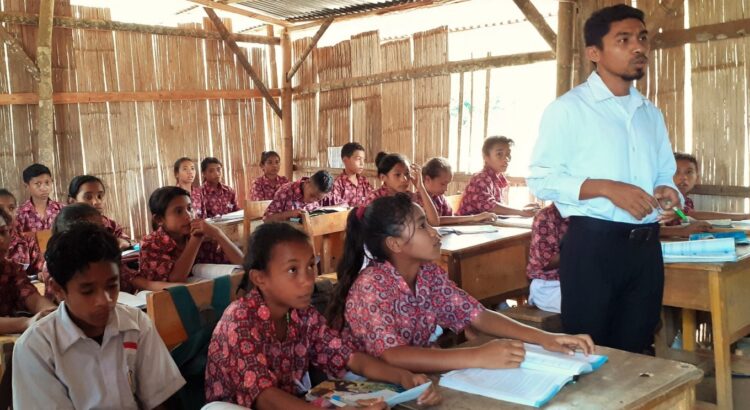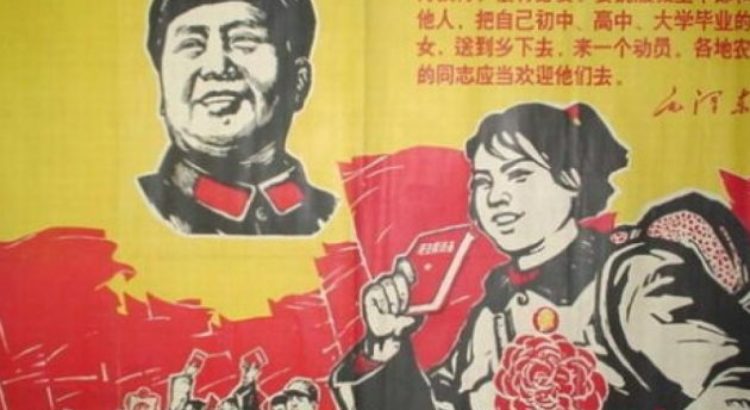Asia/ Indonesia/ 16.06.2020/ By: Sylvia Beiwinkler/ Source: www.thejakartapost.com.
Around 45 million students in Indonesia have been out of class for as long as three months due to COVID-19 fears. As a result, the education sector has changed dramatically with the rise of online learning, which requires students and teachers to continue their learning and teaching process remotely and on a digital platform.
The adoption of online learning is relatively manageable for students in urban areas as their access to connectivity is far better than in rural areas. Rural areas, especially in eastern Indonesia, lag behind when it comes to accessing quality education as facilities and resources are mostly limited. From uneven teacher distribution and shortage of school facilities — which makes the distance to school too far for many students — to inadequate learning space.
The role of education in rural communities is a crucial step to eradicate poverty. Happy Hearts Indonesia (Yayasan Hati Gembira Indonesia), a nonprofit organization dedicated to rebuilding schools in underprivileged areas and in areas affected by natural disasters, foresees that the first step to improving students’ education is to make sure they go to school in the first place, so they can have an equal opportunity to study.
Providing safe and healthy school buildings have a profound impact on improved learning outcomes both academically and interpersonally. Providing school facilities is also beneficial for parents and community members as it strengthens rural livelihoods, so adults can focus on rebuilding their lives and returning to work while their children are attending school.
The return to productivity allows a community to begin generating income more efficiently. To date, Happy Hearts Indonesia has rebuilt over 190 schools around Indonesia, benefitting more than 60,000 children and 300,000 community members.
With the current situation that forced schools to close and children to stay indoors, educational inequality is more visible than ever before. Despite the Education and Culture Ministry’s effort in cooperating technology-based online learning platforms to enabling students to continue their education, their effort is unavailing in rural areas, as many households are still unelectrified and preparedness for digital learning is rather poor.
According to the Energy and Mineral Resources Ministry, over 1.1 million households in Indonesia did not have access to electricity in 2019, with East Nusa Tenggara province at the lowest electrification rate of 73 percent.
As what Bauhaus School founder Walter Gropius once said, “limitation makes the creative mind inventive”, and with compassionate hearts, teachers from the schools that Happy Hearts Indonesia has rebuilt took the initiative on how they addressed the distance-learning barrier amid the pandemic.
Sister Macrina, a kindergarten teacher in Ligouri in Southwest Sumba, visited her students’ houses twice a week to keep them engaged and learning. By doing so, Sister Macrina’s initiative can help prevent chronic absenteeism, which is associated with a permanent school dropout.
As a librarian, Ibu Novi is also keeping students at Masehi Elementary School (SDM) Rua and preschool Kamaru Kaba in Sumba enthusiastic by dropping off learning books at their homes from the community library.
In Flores, Catholic Elementary School (SDK) Roe’s head of school teaches in her house with less than five students a day, and when most students are too eager to study, she reopens the school with a social-distancing classroom setup and limits the sharing of materials within teachers.
Access to sanitation and clean water is also ensured in the school that we have rebuilt. Teachers are also trained on how to do proper hand-washing and now it has become a strict routine that teachers and schoolchildren have to practice to promote healthy standards amid COVID-19.
The adoption of this sincere initiative is indeed inspiring, but if this continues too long, this can only magnify inequities for students in rural areas as the school week is shortened. There is a lack of readiness to adopt remote learning and inadequate relevant tools to carry out remote teaching. Online learning cannot replace the dynamic of a classroom.
School itself is the equalizer to ensure children have equal opportunities to succeed in life. Even though we do not know when this pandemic will end and things get back to normal, the Education and Culture Ministry needs to find ways to promote remote learning without widening the gap of educational inequality.
Source of the news: https://www.thejakartapost.com/academia/2020/06/13/addressing-the-new-normal-for-schools-in-rural-areas.html











 Users Today : 60
Users Today : 60 Total Users : 35459526
Total Users : 35459526 Views Today : 88
Views Today : 88 Total views : 3417846
Total views : 3417846